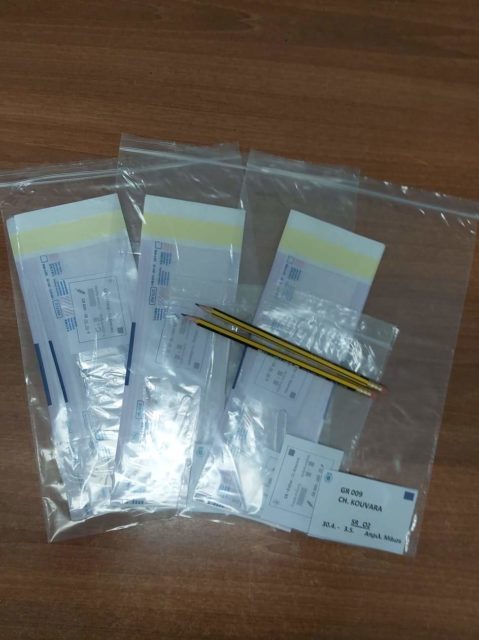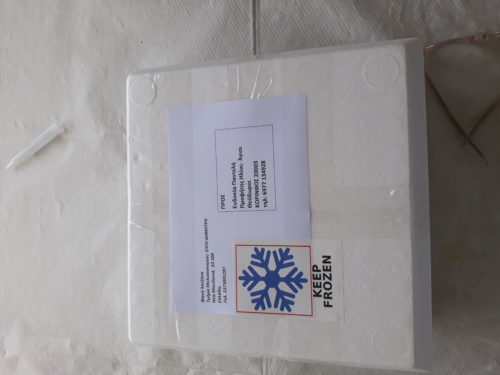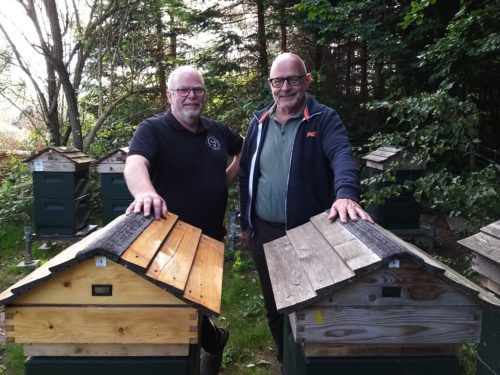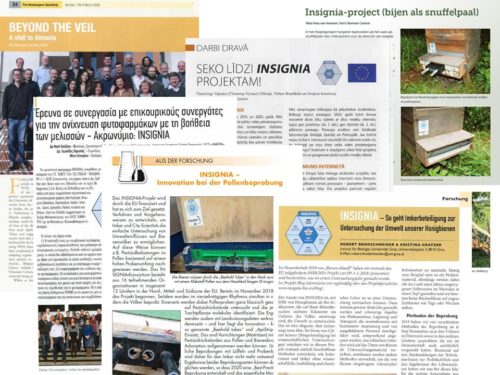Maybe you have not realized that is already 2 full months since we collected the 1st INSIGNIA 2020 sample of pollen and Apistrips! Yes! indeed! and the samples were stored to Citizen Scientists’ freezers till now!
However, the time has come for the first set of samples to be sent to National Coordinators labs, for little processing, checking, homogenizing, and then shipped to laboratories for analysis,
But let’s take in from the beginning. Once the sample of pollen or an Apistrip is collected, it is placed in its own labeled plastic bag , and all samples together from each sampling round in one big labeled bag and stored in -20! See below the pre labeled bags which were sent to Citizen Scientists.

So far so good. Second and very important step is the transfer of the filed bags of pollen to the National Coordinators laboratories in each country. How on earth, can we retain the cool chain required for the pollen to keep its DNA properties intact?
Well, we have a simple answer! Keep the pollen as frozen or cold as possible. Below we show you how we did it in Greece!


Styrofoam boxes with 4 freezing blocs were sent to each CSs, who packed the pollen between the newly frozen blocks and returned them via courier company to the National Coordinator’s laboratory. That way, the samples travelled secure, quickly and retain the cool chain for max 2 days of travel. Furthermore, the courier service was offered by the National Coordinator’s lab, in this case by the Department of Apiculture.
Now we do hope for excellent results!
Written by Fani Hatjina, National Coordinator, Greece














